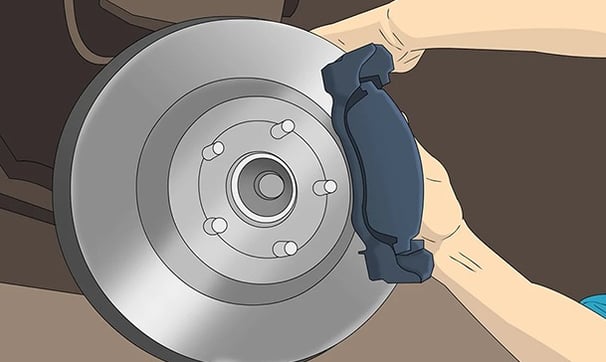How to choose vehicle brake pads?


Choosing the right brake pads for your vehicle is essential for maintaining safe and reliable braking performance. There are several factors to consider when selecting brake pads. Here's a guide to help you make an informed decision:
1. Brake Pad Types:
Organic (Non-metallic): These are made from organic materials like rubber, glass, and resin. They provide smooth and quiet braking, but may wear faster and generate more brake dust.
Semi-metallic: These pads contain a mix of metal fibers and organic materials. They offer better heat dissipation and performance but can be noisier and generate more wear on rotors.
Ceramic: Made from ceramic compounds, these pads are quieter, produce less dust, and offer consistent performance. They are often more expensive but can extend rotor life.
2. Driving Style:
Consider how you drive. If you drive aggressively or carry heavy loads, you might want more performance-oriented pads. If you have a daily commute with minimal aggressive driving, standard pads might suffice.
3. Vehicle Usage:
If you use your vehicle for towing or carrying heavy loads, you'll need brake pads that can handle the increased demands.
4. Compatibility:
Ensure the brake pads you choose are specifically designed for your vehicle's make and model. They should match the brake system and fit correctly.
5. Noise and Dust:
Different types of brake pads generate varying amounts of noise and dust. Consider your preferences and the cleanliness of your wheels when selecting a type.
6. Performance vs. Longevity:
High-performance brake pads might provide better stopping power, but they can wear down faster. Consider the balance between performance and pad lifespan.
7. Budget:
Brake pads come in a range of prices. While it's essential not to compromise on quality and safety, you can find options that fit your budget without sacrificing performance.
8. OEM vs. Aftermarket:
Original Equipment Manufacturer OEM brake pads are made by your vehicle's manufacturer and are designed to match your vehicle's specifications. Aftermarket pads can offer similar or even improved performance at varying price points.
9. Reviews and Recommendations:
Read reviews from other vehicle owners who have used the brake pads you're considering. Their experiences can provide insights into real-world performance.
10. Warranty:
Check if the brake pads come with any warranty. A warranty can offer peace of mind regarding quality and performance.
11. Consult a Professional:
If you're unsure about which brake pads to choose, consider consulting a professional mechanic or the dealership. They can provide expert advice based on your vehicle's needs.
Ultimately, the best brake pads for your vehicle will depend on your driving habits, vehicle usage, and personal preferences. Balance factors like performance, longevity, noise, and dust to find the right set of brake pads that suit your needs and ensure your safety on the road.
